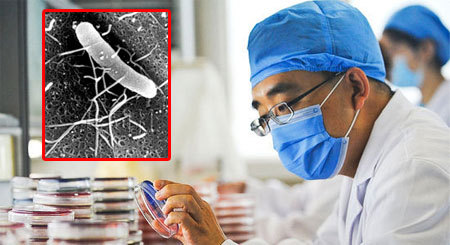Calm urged amid bug scare
Leading Chinese medical scientists have called for calm after traces of the multi-drug-resistant superbug were found in the country, saying it is unlikely to be as widespread as epidemics such as SARS and A/HIN1 influenza were.
|
|
Ni Yuxing, director of the Clinical Microbiology Department at Ruijin Hospital in Shanghai, told the Global Times that "Unlike SARS and A/H1N1, which spread through the respiratory system, the superbug spreads through direct contact. So, it will be unlikely to be widespread."
|
Don't miss |
"The capacity for the superbug to cause and spread diseases is much weaker than that of SARS and A/H1N1," he said.
Furthermore, China has improved its transparency and openness of information on the spread of infectious diseases compared with seven years ago when the SARS epidemic first broke out, he added.
More than 170 first-grade public hospitals have joined the national drug-resistant bacteria surveillance network since 2005, and the Ministry of Health has designated 20 hospitals nationwide to monitor the NDM-1 gene since it was first reported.
Xiao Yonghong, a professor at the First Affiliated Hospital of the Medical School of Zhejiang University, said however that the monitoring of drug-resistant bacteria in China is slow, and there is a long delay between data collection and actual tests.
"Passive monitoring makes it difficult to detect the new drug-resistant phenomena," Xiao said, adding that the network should be expanded to more hospitals to collect data on more diverse types of bacteria.
China's Center for Disease Control and Prevention confirmed Tuesday the first two cases of bacteria carrying the NDM-1 gene, known as the "superbug," in samples taken from two babies born in March in the Ningxia Hui Autonomous Region, the Xinhua News Agency reported.
 0
0 








Go to Forum >>0 Comments